
Berbice River: The Heartbeat of Guyana's Wilderness
The Berbice River, winding its way through the lush landscapes of Guyana, offers a journey into the heart of nature. This river is one of the longest in the country and is surrounded by dense rainforests, rich with wildlife and vibrant flora. As you travel along the Berbice River, you will encounter picturesque villages and towns that provide a glimpse into the local culture and traditions. The river's serene waters are perfect for boating and fishing, making it a haven for those who love water activities. For birdwatchers, the Berbice River is a paradise, with numerous species of birds inhabiting the area. The riverbanks are also home to various animals, including monkeys and sloths, which can often be seen in their natural habitat. Visiting the Berbice River is not just about the natural beauty; it's also about the history and heritage. The area is dotted with historical sites, including old Dutch plantations and forts, which tell the story of Guyana's colonial past. Exploring these sites provides a deeper understanding of the region's history and its impact on the present-day culture.
Local tips in Berbice River
- Bring insect repellent as the area can be buggy, especially near the water.
- Hire a local guide to enhance your experience and learn more about the river's history and wildlife.
- Wear comfortable clothing and footwear suitable for hiking and exploring the rainforest.
- Carry a camera with a good zoom lens to capture the diverse bird species and wildlife.
- Plan your visit during the dry season (August to November) for easier navigation and better wildlife sightings.
Berbice River: The Heartbeat of Guyana's Wilderness
The Berbice River, winding its way through the lush landscapes of Guyana, offers a journey into the heart of nature. This river is one of the longest in the country and is surrounded by dense rainforests, rich with wildlife and vibrant flora. As you travel along the Berbice River, you will encounter picturesque villages and towns that provide a glimpse into the local culture and traditions. The river's serene waters are perfect for boating and fishing, making it a haven for those who love water activities. For birdwatchers, the Berbice River is a paradise, with numerous species of birds inhabiting the area. The riverbanks are also home to various animals, including monkeys and sloths, which can often be seen in their natural habitat. Visiting the Berbice River is not just about the natural beauty; it's also about the history and heritage. The area is dotted with historical sites, including old Dutch plantations and forts, which tell the story of Guyana's colonial past. Exploring these sites provides a deeper understanding of the region's history and its impact on the present-day culture.
When is the best time to go to Berbice River?
Iconic landmarks you can’t miss
The 1763 Monument
Explore the 1763 Monument in Georgetown, a significant symbol of Guyana's historical struggle for freedom and cultural identity.
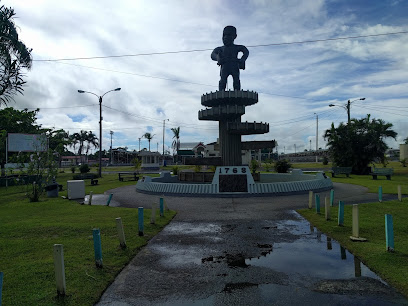
Iwokrama River Lodge
Discover the enchanting beauty of the Guyanese rainforest at Iwokrama River Lodge, an eco-friendly retreat offering unique adventures and serene experiences.
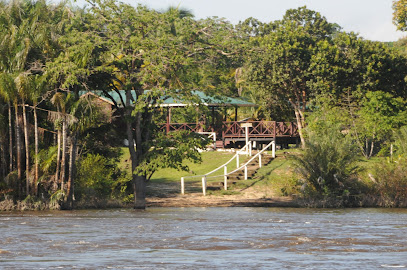
Berbice Bridge Company
Discover the stunning Berbice Bridge, an engineering marvel, and a scenic gateway to the vibrant culture and natural beauty of Guyana.
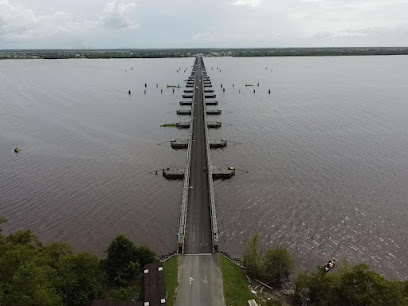
Number 63 Beach
Discover the serene beauty of Number 63 Beach in Guyana, where golden sands meet the Atlantic Ocean for an unforgettable escape.
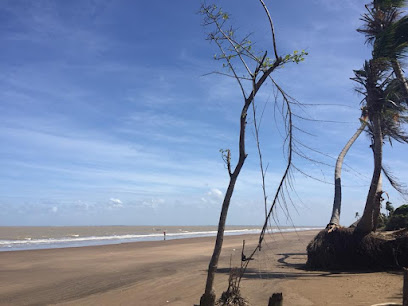
Little Rock Suites
Discover comfort and local charm at Little Rock Suites, the perfect base for exploring Georgetown's vibrant culture and history.

Outback Adventures
Discover the thrill of nature at Outback Adventures, a premier recreation center in Guyana offering unforgettable outdoor experiences amidst lush landscapes.
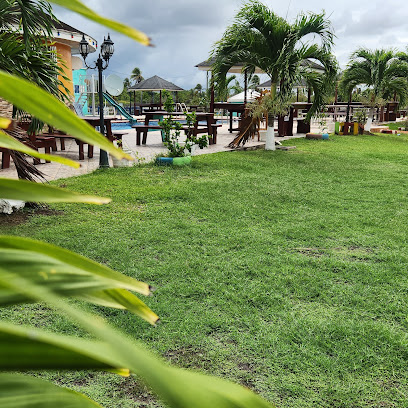
The Christianburg Waterwheel
Discover the rich history of the Christianburg Waterwheel, a stunning historical landmark in Linden that reflects the region's sugar production legacy.
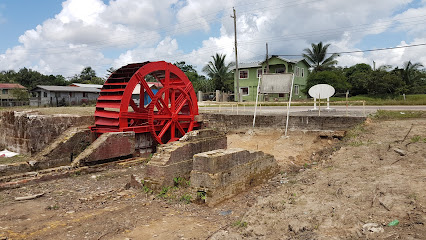
Indian Arrival Monument
Explore the Indian Arrival Monument, a historical landmark celebrating the rich cultural heritage of India's influence in Guyana.
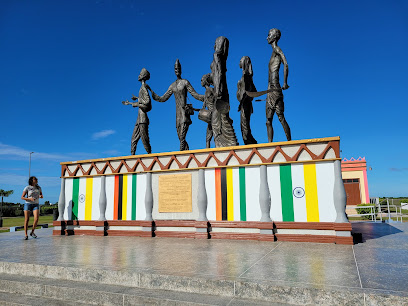
Canje River
Discover the tranquil beauty of Canje River in Guyana, where adventure meets serenity in a stunning natural landscape.
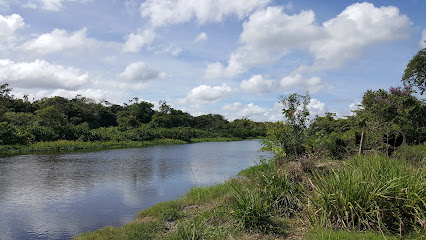
Fort Kyk-Over-Al
Explore Fort Kyk-Over-Al, a historical gem in Guyana, where history, culture, and breathtaking views come together for an unforgettable experience.
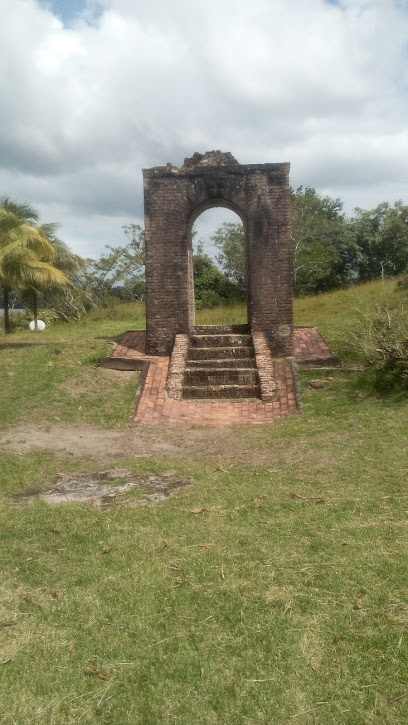
Zero Gravity Homestyle chicken fish and chips
Experience the authentic taste of Guyanese comfort food at Zero Gravity Homestyle Chicken Fish and Chips in New Amsterdam, offering delicious fried chicken and fish dishes.
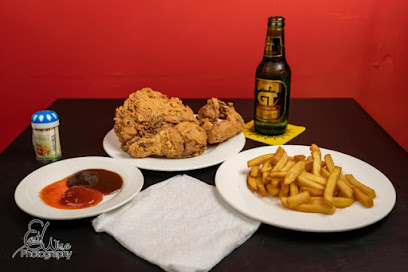
State House (Governor House)
Discover the historical significance of State House, an iconic landmark reflecting the rich heritage of New Amsterdam, Guyana.
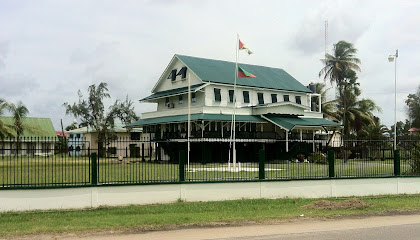
Berbice Indian Culture community
Discover the vibrant traditions and colorful heritage of the Berbice Indian Culture community in New Amsterdam, a unique gem in Guyana.
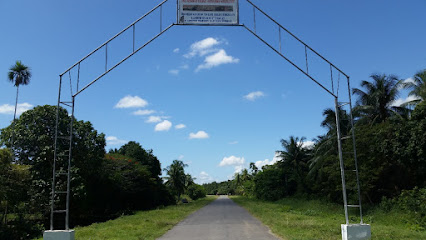
Unmissable attractions to see
Promenade Gardens Guyana
Unwind at Promenade Gardens, a serene green oasis in Georgetown, Guyana, perfect for nature lovers and urban explorers alike.
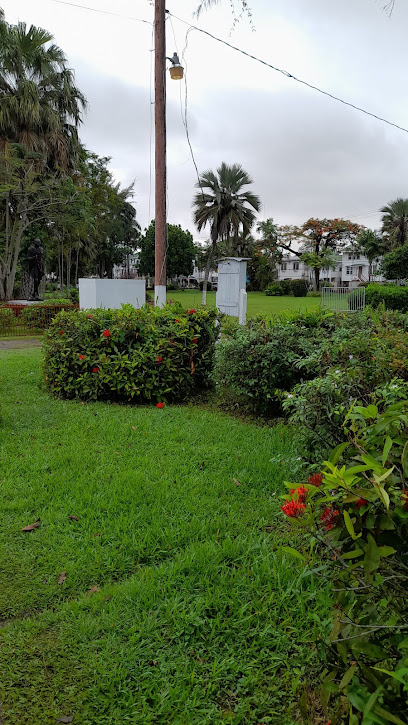
The 1763 Monument
Explore the 1763 Monument in Georgetown, a powerful symbol of freedom and resilience, and learn about Guyana's rich cultural heritage.
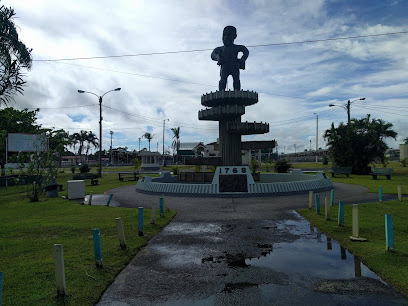
Baracara Falls
Experience the breathtaking beauty and rich wildlife at Baracara Falls, a hidden gem in St Edwards Mission, Guyana.
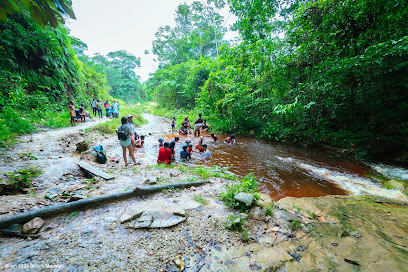
Linden Sky Lake
Experience the serene beauty of Linden Sky Lake, a tranquil destination perfect for relaxation and nature exploration in Guyana.
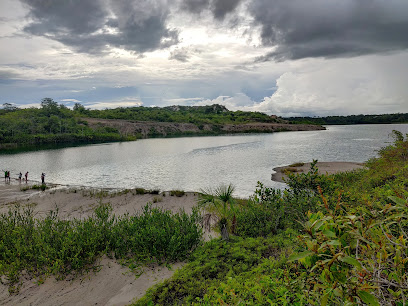
Joel House
Experience the serene beauty and vibrant wildlife at Joel House, a premier bird watching area in New Amsterdam, perfect for nature lovers.
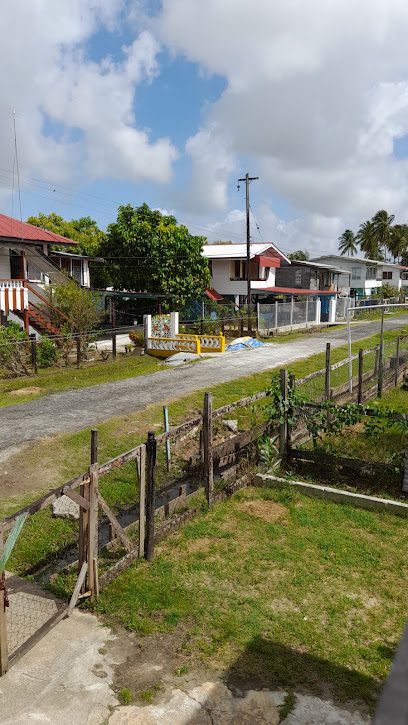
Iwokrama Forest
Explore Iwokrama Forest, a breathtaking nature preserve in Guyana, rich in biodiversity and adventure for every nature lover.

Keith And Sons Flower Garden
Explore the vibrant beauty of Keith And Sons Flower Garden in New Amsterdam, a serene escape filled with colorful blooms and tranquil paths.
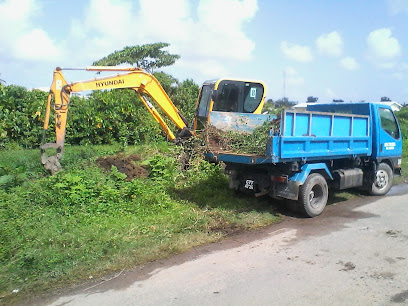
Dacoura Nature Park
Discover Dacoura Nature Park: a serene campground in Linden, Guyana, perfect for camping, hiking, and immersing in nature's beauty.

Hauraruni Creek
Experience the tranquility of Hauraruni Creek, a natural paradise near Georgetown, perfect for relaxation, exploration, and connecting with nature.
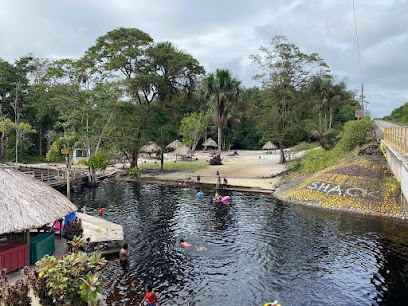
Black Creek
Discover the serene beauty and adventure of Black Creek, a captivating hiking area in Linden, Guyana, perfect for nature lovers and outdoor enthusiasts.
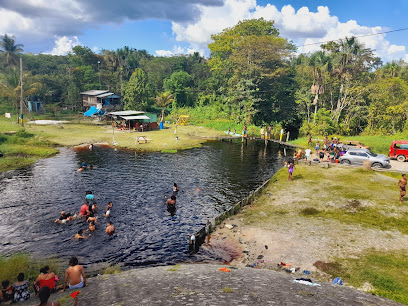
Richmond Hills Cliff Lookout
Discover the breathtaking views at Richmond Hills Cliff Lookout, a hiker's paradise in Linden, perfect for nature lovers and photography enthusiasts.
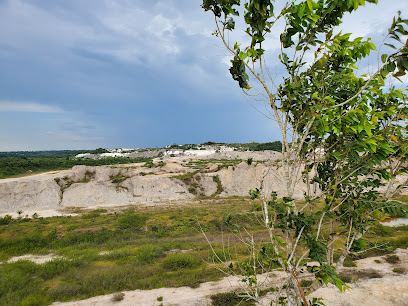
Mayor's Park
Experience the tranquil beauty of Mayor's Park in Linden, a serene escape perfect for relaxation and nature lovers exploring Guyana.
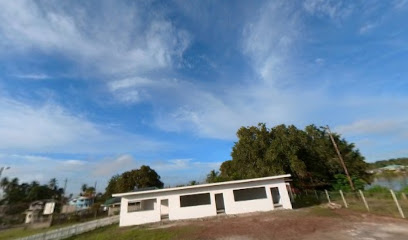
Roy Geddes Steel Pan Museum
Explore the vibrant sounds and rich history of steel pan music at the Roy Geddes Steel Pan Museum in Georgetown, Guyana.
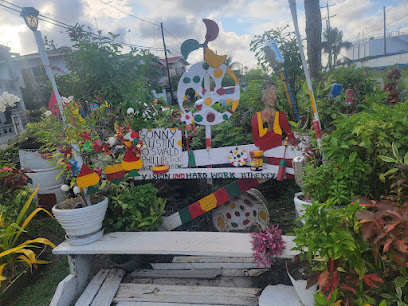
Lucky Spot
Experience the rich culture and breathtaking nature at Lucky Spot in Linden, a must-visit attraction in Guyana for every traveler.
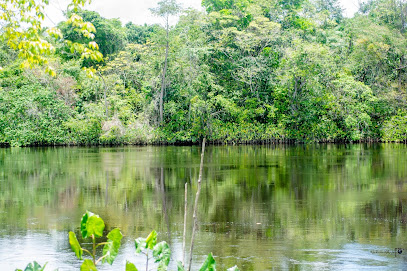
Blue Lake Linden
Explore the enchanting Blue Lake Linden in Guyana, where stunning blue waters and serene nature offer the perfect getaway for tourists and adventure seekers.
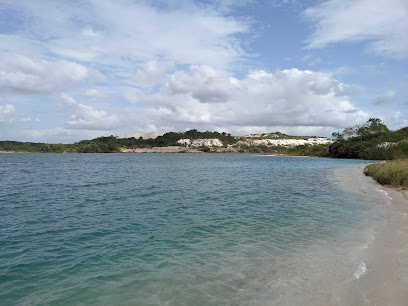
Essential places to dine
Spready's Snackette & Bakery
Experience authentic Guyanese flavors at Spready's Snackette & Bakery in Port Mourant – a must-visit for food lovers!
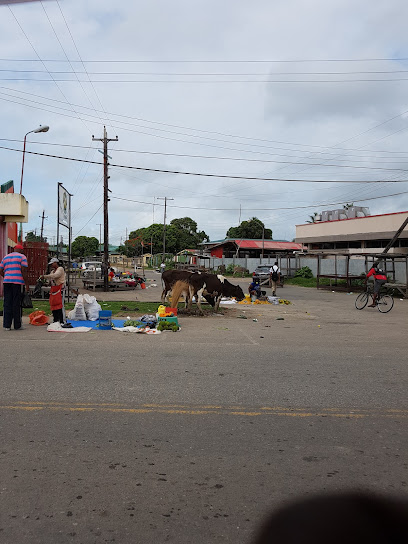
Big B's Baksh Restaurant (Halall) - Rosignol
Experience the rich culinary heritage of Guyana at Big B's Baksh Restaurant in Rosignol - where every dish tells a story.
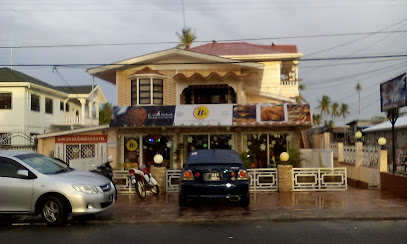
Sue Brothers
Experience authentic Chinese cuisine at Sue Brothers in New Amsterdam – where tradition meets local flavors.
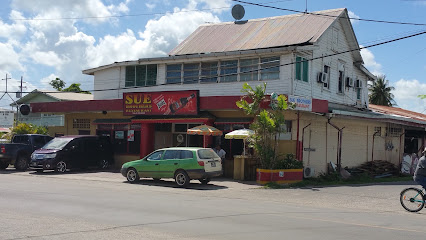
Church's Chicken
Experience mouthwatering fried chicken and local flavor at Church's Chicken in New Amsterdam - perfect for quick bites on your travel adventures.
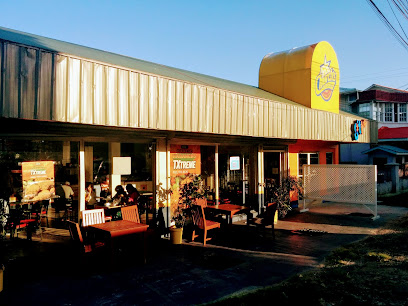
Demico, New Amsterdam
Experience authentic Guyanese flavors at Demico in New Amsterdam - where every meal tells a story.
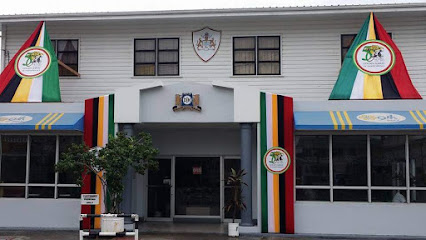
La Caribe Diner
Experience authentic Caribbean flavors at La Caribe Diner in New Amsterdam—where every dish tells a story of Guyanese heritage.
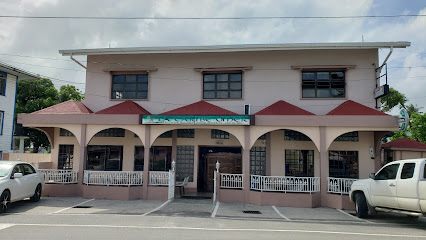
Ali's Halaal Snackette
Discover authentic halal delights at Ali's Halaal Snackette in Port Mourant – where every bite tells a story.
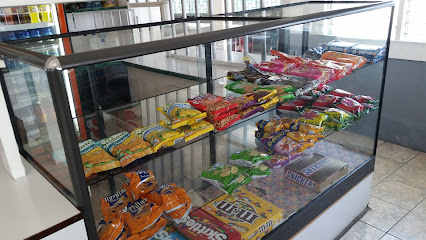
CARIBBEAN CUISINE RESTAURANT & COCKTAIL BAR
Experience authentic Caribbean cuisine in Berbice at our vibrant restaurant and cocktail bar, where every meal tells a flavorful story.
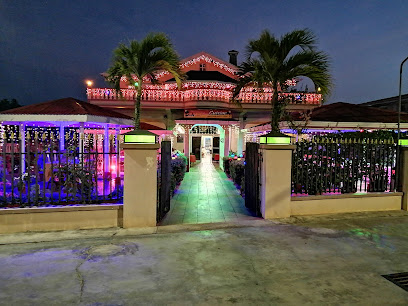
Floppy Chick-Inn Restaurant and Bar
Discover authentic grill cuisine at Floppy Chick-Inn Restaurant and Bar in Vryheid Village - where every bite is a celebration of local flavors.
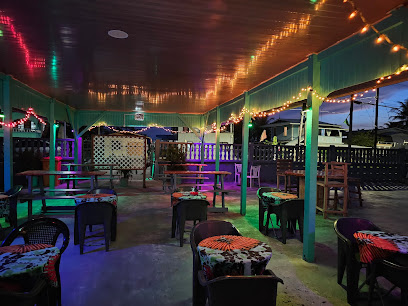
Jokwesan's Creole Restaurant
Experience authentic Creole flavors at Jokwesan's Restaurant in New Amsterdam – where every dish tells a story.
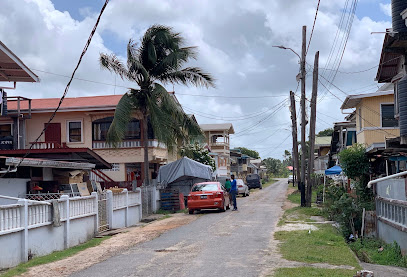
Gina's Restaurant
Discover authentic Guyanese cuisine at Gina's Restaurant on Berbice Highway – where every meal tells a story.

ONAWA'S FISHSHOP AND GUINNESS BAR
Experience the flavors of Berbice at Onawa's Fishshop and Guinness Bar – where grilled seafood meets vibrant culture in New Amsterdam.
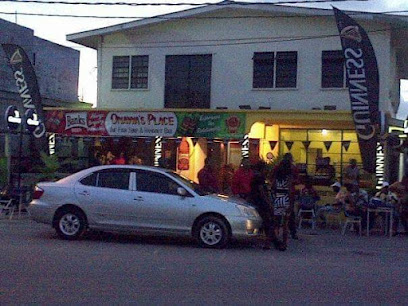
Zero Gravity Homestyle chicken fish and chips
Discover authentic Guyanese cuisine at Zero Gravity Homestyle Chicken Fish and Chips in New Amsterdam – where comfort food meets local flavor!
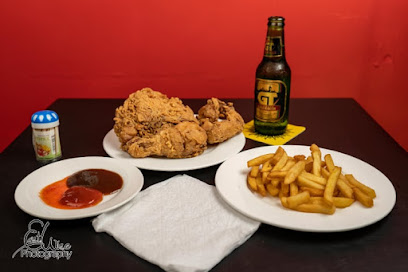
Cozy Pub Restaurant & Lounge
Discover Berbice's Cozy Pub Restaurant & Lounge - A perfect blend of delicious local cuisine and vibrant nightlife awaits you.

Hong’s Delicious Restaurant
Discover the vibrant flavors of authentic Chinese cuisine at Hong's Delicious Restaurant in New Amsterdam - a true culinary delight!
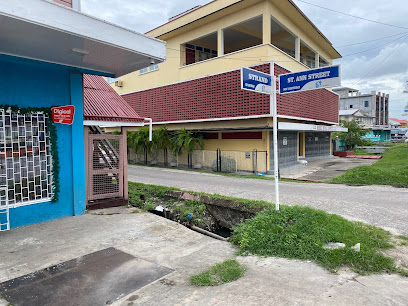
Markets, malls and hidden boutiques
A. Ally & Sons General Store
Discover the essence of New Amsterdam at A. Ally & Sons, your one-stop shop for unique treasures and local craftsmanship.
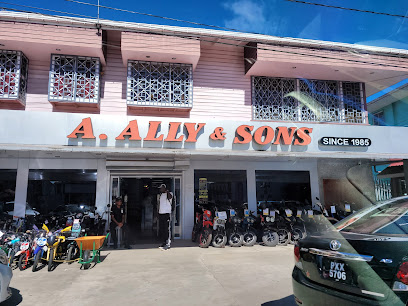
New Amsterdam Market
Explore the vibrant New Amsterdam Market, a hub for automotive enthusiasts in Guyana, offering diverse vehicles and local expertise.
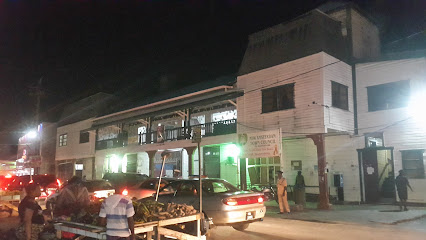
A. Ally & Sons Superstore
Discover A. Ally & Sons Superstore in New Amsterdam, where quality appliances and electronics meet exceptional shopping experiences.
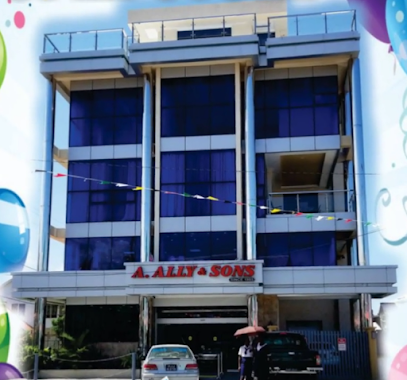
Jen's Creation Clothing Store
Discover unique local fashion at Jen's Creation Clothing Store in New Amsterdam, where every piece reflects the vibrant culture of Guyana.

Colours Of India (Guyana)
Immerse yourself in the vibrant culture of Guyana at Colours Of India, a unique clothing store offering traditional and contemporary fashion.
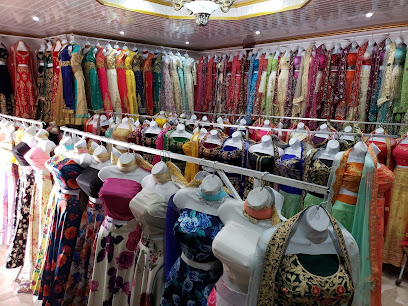
Pro Audio Electronics
Discover top-notch audio equipment and expert advice at Pro Audio Electronics, the ultimate destination for music lovers and professionals alike.
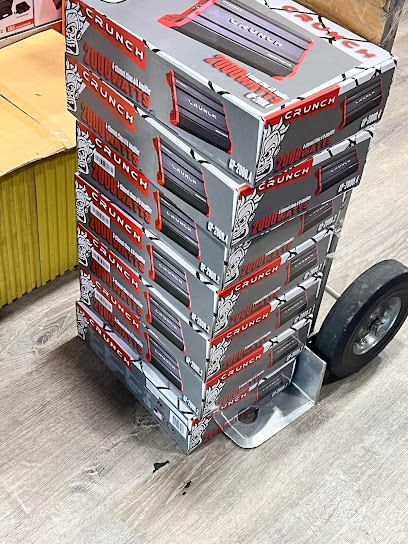
B.Ramoutar And Sons Furniture Establishment
Explore exquisite locally crafted furniture at B.Ramoutar And Sons in New Amsterdam, a must-visit for a taste of Guyanese artistry.
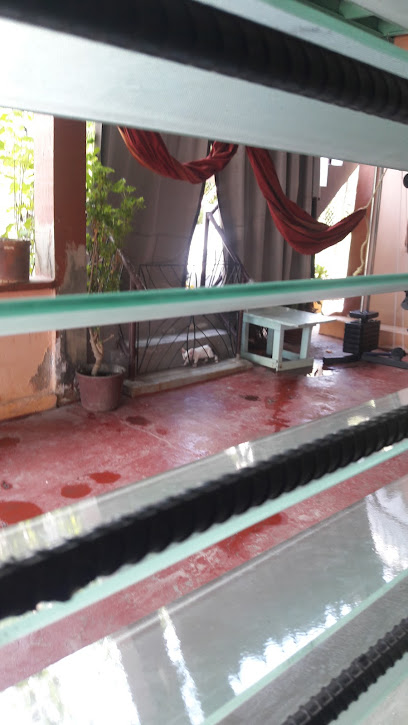
Full House Furniture
Explore the finest selection of local craftsmanship at Full House Furniture, where every piece tells a story of Guyana's rich cultural heritage.

Signature online shopping
Discover the essence of Berbice fashion at Signature online shopping, where style and convenience meet in a vibrant shopping experience.

Gift of Art
Explore Gift of Art in Rosignol for unique, handcrafted souvenirs that reflect the vibrant culture and artistry of Guyana.

Descia's Online shopping
Discover Descia's Online Shopping in Berbice for a diverse range of health and beauty products that enhance your travel experience.

Ravi & Son's Jewellery
Discover exquisite craftsmanship and unique jewelry designs at Ravi & Son's Jewellery, a gem of a store for tourists seeking memorable keepsakes.
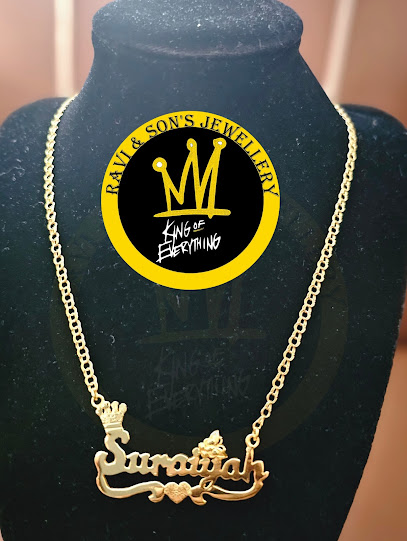
K's Royaltouch beauty bar & gift centre.
Explore K's Royaltouch Beauty Bar & Gift Centre for unique gifts and beauty products that reflect the vibrant culture of Berbice.
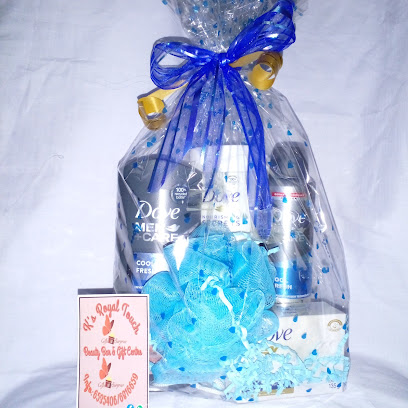
Fairy Dust Gift Shop
Discover unique gifts and local crafts at Fairy Dust Gift Shop in New Amsterdam, Georgetown, a must-visit for every traveler to Guyana.

Luxe Gifts Galore
Explore a treasure trove of local crafts and unique gifts at Luxe Gifts Galore, the finest gift shop in New Amsterdam, Guyana.
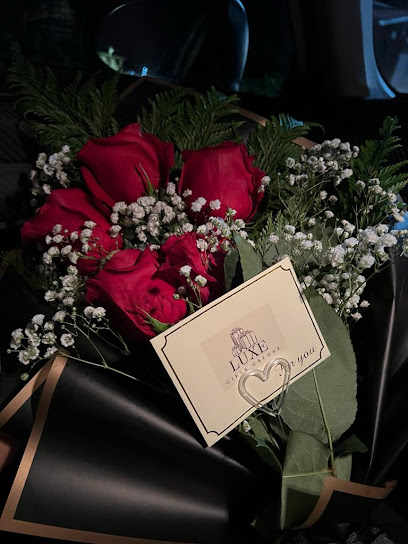
Essential bars & hidden hideouts
CARIBBEAN CUISINE RESTAURANT & COCKTAIL BAR
Experience the authentic tastes of the Caribbean with delightful dishes and refreshing cocktails at Caribbean Cuisine Restaurant & Cocktail Bar in Berbice.
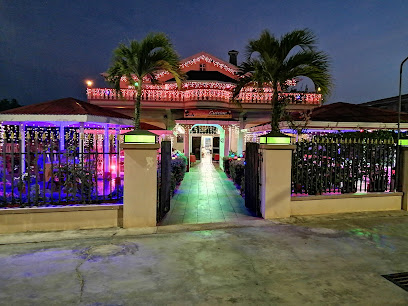
Zero Gravity Sports Bar & Hookah Lounge
Experience the vibrant nightlife and relaxing atmosphere of Zero Gravity Sports Bar & Hookah Lounge in New Amsterdam, a perfect spot for socializing and unwinding.
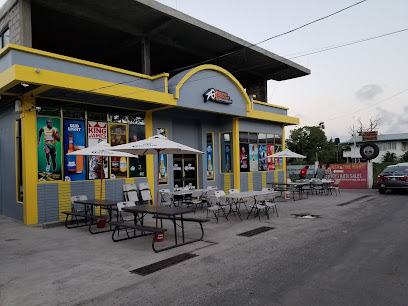
Floppy Chick-Inn Restaurant and Bar
Experience the vibrant flavors of Caribbean cuisine at Floppy Chick-Inn Restaurant and Bar in New Amsterdam, a must-visit for food lovers.
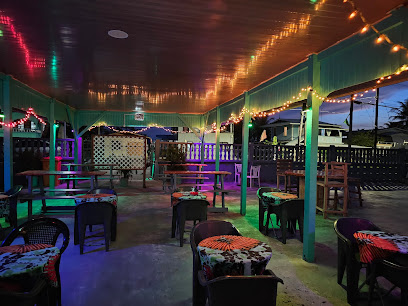
J&S bar
Discover the lively and welcoming atmosphere of J&S Bar in New Amsterdam, where local culture meets a vibrant nightlife experience.
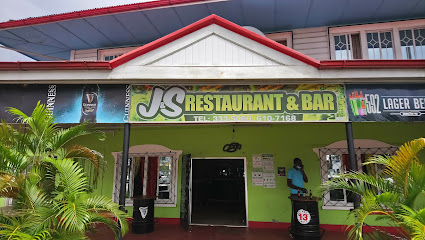
Epics Bar/Club
Discover the lively atmosphere and diverse drink options at Epics Bar/Club in New Amsterdam, a hotspot for nightlife and entertainment.
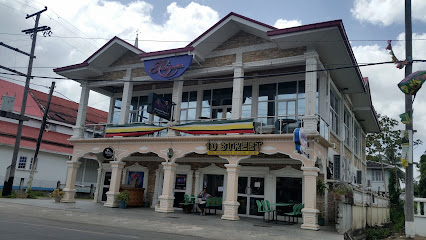
Zero Gravity Homestyle chicken fish and chips
Experience the rich flavors of Guyana at Zero Gravity Homestyle Chicken Fish and Chips, where comfort food meets local hospitality.
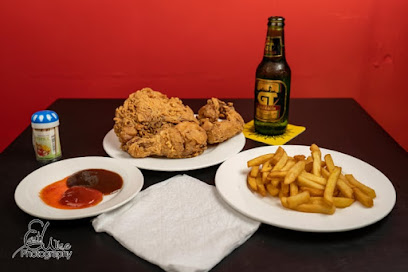
ONAWA'S FISHSHOP AND GUINNESS BAR
Experience the vibrant flavors of the Caribbean at Onawa's Fishshop and Guinness Bar, where fresh seafood meets lively entertainment in New Amsterdam.
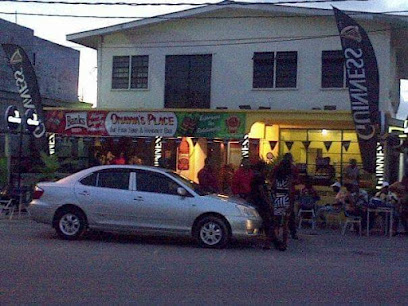
Cozy Pub Restaurant & Lounge
Experience the best of local cuisine and vibrant nightlife at Cozy Pub Restaurant & Lounge in De’edward Village, Berbice.

BOSS LADY CREOLE RESTAURANT AND BAR
Experience the vibrant flavors of Creole cuisine at Boss Lady Creole Restaurant and Bar in New Amsterdam, where local culture meets culinary excellence.
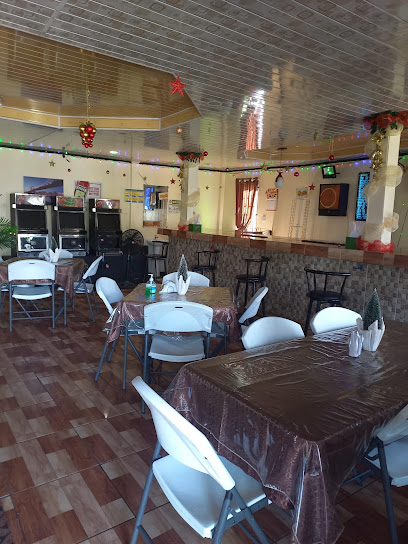
Seas N Breeze Bar + Lounge
Experience the coastal charm of Seas N Breeze Bar + Lounge in Corriverton, Berbice, where breathtaking views and local flavors come together.

Mr T and D Resturant & Bar
Experience the vibrant local culture at Mr T and D Restaurant & Bar, a must-visit destination in Rosignol for drinks, music, and community spirit.
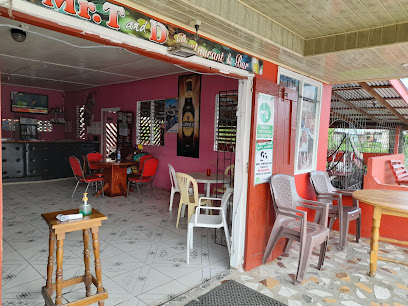
Buckanair Bar
Discover the lively Buckanair Bar in New Amsterdam, a perfect blend of local charm and vibrant nightlife for every traveler.
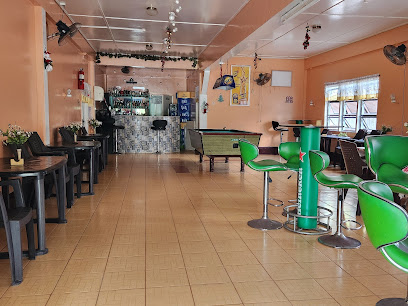
Fraser's Liquor Restaurant and Bar
Discover Fraser's Liquor Restaurant and Bar in West Coast Berbice, where local flavors meet a lively atmosphere for an unforgettable experience.
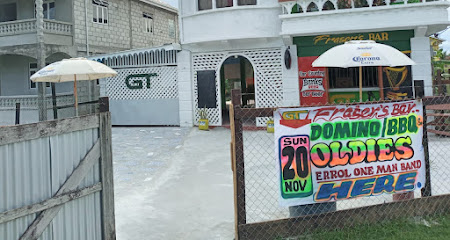
Iwalola Restaurant
Discover the flavors of Berbice at Iwalola Restaurant, where local cuisine meets a warm and inviting atmosphere.

Local Phrases about Berbice River
-
- HelloWah gwaan
[Wah gwaan] - GoodbyeLater
[Later] - YesYa man
[Ya man] - NoNah man
[Nah man] - Please/You're welcomeBless up
[Bless up] - Thank youTank yuh
[Tank yuh] - Excuse me/SorryPardon me
[Pardon me] - How are you?How yuh deh?
[How yuh deh?] - Fine. And you?Mi deh good. An yuh?
[Mi deh good. An yuh?] - Do you speak English?Yuh speak English?
[Yuh speak English?] - I don't understandMi nah undastan
[Mi nah undastan]
- HelloWah gwaan
-
- I'd like to see the menu, pleaseMi wah see di menu, please
[Mi wah see di menu, please] - I don't eat meatMi nah eat meat
[Mi nah eat meat] - Cheers!Big up!
[Big up!] - I would like to pay, pleaseMi wah pay, please
[Mi wah pay, please]
- I'd like to see the menu, pleaseMi wah see di menu, please
-
- Help!Ayoo!
[Ayoo!] - Go away!Move yuhself!
[Move yuhself!] - Call the Police!Call de Police!
[Call de Police!] - Call a doctor!Call a doctor!
[Call a doctor!] - I'm lostMi lost
[Mi lost] - I'm illMi sick
[Mi sick]
- Help!Ayoo!
-
- I'd like to buy...Mi wah buy...
[Mi wah buy...] - I'm just lookingMi jus a look
[Mi jus a look] - How much is it?Awe much dat deh?
[Awe much dat deh?] - That's too expensiveDat too costly man
[Dat too costly man] - Can you lower the price?Yuh can drop di price?
[Yuh can drop di price?]
- I'd like to buy...Mi wah buy...
-
- What time is it?Awe time it deh?
[Awe time it deh?] - It's one o'clockIt one o'clock
[It one o'clock] - Half past (10)Half pass ten
[Half pass ten] - MorningMawnin
[Mawnin] - AfternoonEvenin
[Evenin] - EveningEve
[Eve] - YesterdayYestadeh
[Yestadeh] - TodayToday
[Today] - TomorrowTamaro
[Tamaro] - 1One
[One] - 2Two
[Two] - 3Tree
[Tree] - 4Fo'
[Fo'] - 5Five
[Five] - 6Six
[Six] - 7Seven
[Seven] - 8Eight
[Eight] - 9Nine
[Nine] - 10Ten
[Ten]
- What time is it?Awe time it deh?
-
- Where's a/the...?Weh de ... deh?
[Weh de ... deh?] - What's the address?Awe de address deh?
[Awe de address deh?] - Can you show me (on the map)?Yuh can show me (pan de map)?
[Yuh can show me (pan de map)?] - When's the next (bus)?When de next (bus)?
[When de next (bus)?] - A ticket (to ....)A ticket (to ....)
[A ticket (to ....)]
- Where's a/the...?Weh de ... deh?
History of Berbice River
-
Long before European colonization, the Berbice River region was inhabited by Indigenous peoples, including the Arawak and Carib tribes. These communities thrived on fishing, hunting, and farming, and their presence is still evident in the archaeological sites and cultural traditions that have been preserved.
-
In the early 17th century, Dutch settlers established the colony of Berbice along the river. Governed by the Dutch West India Company, the colony became an important center for sugar cultivation and trade. Fort Nassau, built in 1627, served as the administrative center and a defensive stronghold against rival European powers and local resistance.
-
One of the most significant events in the history of the Berbice River region was the Berbice Slave Rebellion of 1763. Led by an enslaved man named Cuffy, the rebellion saw thousands of enslaved Africans rise up against the Dutch colonial authorities. Although ultimately suppressed, the rebellion had a profound impact on the struggle for freedom and justice in the Caribbean.
-
In 1815, following the Napoleonic Wars, the British took control of Berbice, merging it with the colonies of Demerara and Essequibo to form British Guiana. The Berbice River continued to be a vital artery for the transportation of goods, particularly sugar, which remained a critical part of the colony's economy.
-
Guyana gained independence from Britain in 1966, and the Berbice River region has since evolved with the nation's growth. The construction of the Berbice Bridge in 2008 significantly improved connectivity and economic development. Today, the river is central to eco-tourism, with its rich biodiversity and scenic landscapes attracting visitors from around the world.
-
The cultural heritage of the Berbice River region is a vibrant tapestry of Indigenous, African, Dutch, and British influences. Annual festivals, such as the Berbice Expo and Trade Fair, celebrate this diverse heritage with music, dance, and culinary traditions. The region's folklore and storytelling also reflect its complex history and enduring spirit.
Berbice River Essentials
-
Berbice River is located in eastern Guyana. To get there, the nearest international airport is Cheddi Jagan International Airport (CJIA) in Georgetown. From Georgetown, you can take a domestic flight to New Amsterdam or utilize road transportation. The drive from Georgetown to New Amsterdam takes approximately 2 to 3 hours. From New Amsterdam, you can hire a boat to travel along the Berbice River.
-
Once in the Berbice River area, local transportation options include taxis, minibuses, and boats. Taxis are readily available and can be hailed on the street or booked via phone. Minibuses operate on specific routes and are a budget-friendly option. For river travel, boats are essential and can be rented from local operators. Ensure you agree on the fare before starting your journey.
-
The official currency in Guyana is the Guyanese Dollar (GYD). Credit cards are accepted in some hotels, restaurants, and larger businesses, but cash is preferred, especially in smaller establishments and rural areas. ATMs are available in New Amsterdam, but it's advisable to carry enough cash for your trip to the Berbice River region.
-
While the Berbice River area is generally safe for tourists, it's important to be cautious. Avoid walking alone at night, especially in unfamiliar areas. High-crime areas targeting tourists are not prevalent, but it's wise to stay vigilant and avoid displaying valuables. Always inform someone of your travel plans when venturing into remote areas.
-
In case of emergency, dial 911 for police, fire, or medical assistance. New Amsterdam has medical facilities, including hospitals and pharmacies. Ensure you have travel insurance that covers medical emergencies. For minor health issues, over-the-counter medications can be purchased at local pharmacies.
-
Fashion: Do wear lightweight, breathable clothing suitable for a tropical climate. Avoid overly revealing attire. Religion: Do respect local customs and traditions; some areas may have religious significance. Public Transport: Do be courteous and offer seats to elderly passengers. Don't eat or drink on public transport. Greetings: Do greet people with a handshake and a smile. Eating & Drinking: Do try local dishes and accept food offerings graciously. Don't refuse hospitality, as it is considered impolite.
-
To experience the Berbice River like a local, visit the markets in New Amsterdam where you can buy fresh produce and local products. Engage with the local community; they are often friendly and willing to share stories about the area's history and culture. Don't miss the opportunity to explore the river's natural beauty, including its diverse wildlife and lush landscapes. For a unique experience, take a guided river tour to learn about the region's ecological and cultural significance.
Trending Landmarks in Berbice River
-
The 1763 Monument
-
Iwokrama River Lodge
-
Berbice Bridge Company
-
Number 63 Beach
-
Little Rock Suites
-
Outback Adventures
-
The Christianburg Waterwheel
-
Indian Arrival Monument
-
Canje River
-
Fort Kyk-Over-Al
-
Zero Gravity Homestyle chicken fish and chips
-
State House (Governor House)
-
Berbice Indian Culture community
Nearby Cities to Berbice River
-
Things To Do in Ituni
-
Things To Do in Linden
-
Things To Do in Skeldon
-
Things To Do in New Amsterdam
-
Things To Do in Bartica
-
Things To Do in Anna Regina
-
Things To Do in Kamarang
-
Things To Do in Lethem
-
Things To Do in Lelydorp
-
Things To Do in Paramaribo
-
Things To Do in Mariënburg
-
Things To Do in Brokopondo
-
Things To Do in Moengo
-
Things To Do in Albina
-
Things To Do in Princes Town








